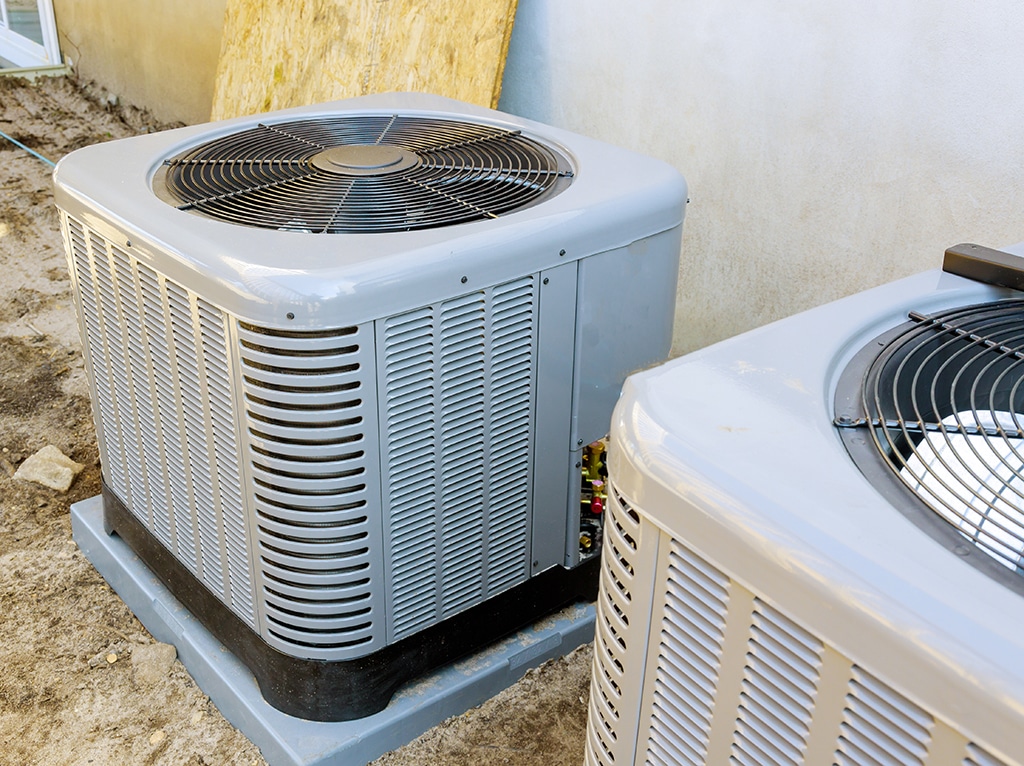
Air Conditioner Installation Permits And Inspection: Benefits Of Inspections And Permits | Dallas, TX
Photo By ungvar at Shutterstock
Thinking of installing an air conditioner for your home in Dallas, TX? Air conditioner installation—just like any major construction project—is an investment that typically requires permits and compliance with existing codes.
Most homeowners link large-scale projects such as roof replacement, garage construction, and shed building to building permits. Several home additions require county/city regulation. These include installing (or replacing) an HVAC unit.
At One Hour Air Conditioning of Heating, we conduct a thorough air conditioner installation process, typically involving acquiring permits and every necessity on behalf of our clients. Below is an in-depth guide on the permits and requirements necessary for an AC installation project.
What Are Air Conditioning Unit Installation Permits?
Generally, a permit is a form of permission that a local state government issues to a homeowner or contractor to move, add, or add structures to an existing property. Alterations requiring permits are usually more permanent. For instance, you require a permit to remove/install an air conditioner or furnace.
Permits are requirements by law, and contractors must pull or obtain a permit before significant projects. Different cities and municipalities have varying restrictions and requirements. However, an air conditioner installation requires a permit regardless of your locality. As a licensed HVAC contractor, we can help you with any questions and concerns on permits for your immediate municipality.
What Are Inspections?
By obtaining permits to install an HVAC unit, expect a mandatory inspection to accompany the permit and ascertain that the permitted project is up to code and standards. A certified inspector assesses the installation job during third-party inspections to ensure it has followed state and local building codes and manufacturer specifications. The inspector recommends an appropriate course of action based on the inspection findings.
Upon the air conditioner installation, we recommend your new fixture gets inspected accordingly. This guarantees your safety and backs up our solid AC installation work. Since air conditioners require the installers to possess expertise in electrical systems and heating/cooling systems, you must hire the best-quality air conditioner installation contractors to do the job. This increases your chances of passing the inspection the first time.
Why You Need Permits for Air Conditioner Installation
Permits and inspections are essential even if local and state authorities wouldn’t deem them mandatory. Below are reasons why getting permits are vital before an air conditioner installation project in Dallas, TX.
1. Permits Ensure Your Safety
Generally, a permit doesn’t ensure your safety as much as the resulting inspection does. On the one hand, permits allow you to install your air conditioner. On the other hand, an inspection—typically after any installation or alteration project—follows through to ensure the installation project is safe for usage.
Depending on the contractors you hire for the AC installation job, you can expect the quality of the installation job to rank from terrible to great. A terrible air conditioning unit installation is most likely a safety hazard. Therefore, the inspection that comes after a permitted installation project checks the nature of the installation for safety hazards.
Consequently, the inspector may deem the installation worthy or unworthy (unsafe) based on the visible evidence and at their discretion. An inspection helps to ensure your AC unit is installed correctly and doesn’t pose a hazard to you, your family, or your property.
2. Permits Are Necessary to Ensure Compliance
Non-compliance with state regulations is a terrible offense in the US. Failure to comply with any building regulations or codes attracts punishment detrimental to you and your finances. It is essential to ensure you obtain a permit before an air conditioner installation project to be in good books with the local authorities. Read further to understand the disadvantages of not getting a permit for the AC installation.
3. Permits Ensure that the AC Installation Adhere to Energy-Efficiency Requirements
Besides ensuring compliance and safety, a building permit ensures that the AC being installed matches the federally mandated SEER ratings. It also guarantees that the unit is energy efficient. Air conditioners have always affected energy use and the ecosystem. As such, these units face federal regulations that vary across states.
Generally, residential air conditioners have a Seasonal Energy Efficiency Ratio (SEER) rating of between 10-20. Older air conditioners may have SEER ratings lower than that. In Texas, the existing federal requirement for air conditioners is for these units to have a SEER rating of at least 14. However, a new SEER rating of 15 is coming in 2023 for Texans who want to install new air conditioners in their homes.
Having a permit before the air conditioning installation clearly indicates that your unit is safe, energy-efficient, and at par with federally-mandated SEER ratings.
4. Permits Help You Avoid Unlicensed HVAC Contractors
It is often easy for unlicensed contractors to get caught up in the need to take shortcuts during an air conditioner installation. The result is improper installations that pose safety threats to you and your property.
Unfortunately, it is almost impossible to get recourse against unlicensed HVAC installers and their shoddy jobs. Even worse, you may end up spending more on repairing the damages of improper workmanship by unlicensed contractors. Unlicensed contractors tend to prey on unsuspecting clients not exercising caution, such as having a permit.
5. Permits Help You Resell Your Home Easily
A paper trail is an essential detail that a prospective homebuyer uses to determine and prove any improvements to a house. It is easy to break down the air conditioner installation process with a permit to ascertain that it was up to code and guarantee quality.
If you installed a new air conditioner without a permit, chances are the buyer may want to back out of the deal. In the rare instance that they agree to deal, such a scenario takes away your bargaining chip and significantly reduces your home resale value. The new homeowner may then have to ensure compliance by either ordering a new air conditioner installation on their costs or paying for an inspection.
Do I need a permit for my upcoming air conditioner installation project? Having a permit ensures you comply with local and state regulations and codes. It also ensures that your new AC is installed to standards and is energy-efficient. At One Hour Air Conditioning and Heating, we guarantee professional AC installation services that comply with local and state codes.
Consequences of Installing Air Conditioners Without Permits
Having a permit guarantees your safety and peace of mind, especially when dealing with the authorities. However, not all homeowners like the idea of the time it takes to get a permit for the air conditioner installation project. As with almost every requirement, failure to get a permit and inspection has consequences. These typically include:
1. Safety Repercussions
A permit and an inspection help to ensure your safety. Unfortunately, improper AC installations can cause accidents and damages. The systems may leak carbon monoxide, and gas lines and furnaces may blow up. An inspection ensures your installed AC doesn’t compromise your safety in any way.
Avoiding permits and inspections to save on expenses may turn out to be a terrible idea, especially since the damages may be more costly than the costs of acquiring a permit. Shoddy AC installation may lead to several health issues for you and your family in Dallas, TX.
2. Quality Repercussions
Your air conditioner installation’s quality is compromised without a permit and inspection. How can you determine if the AC was installed correctly without an inspection? AC units typically last 15-20 years if properly maintained. However, an air conditioner may break down in the first few years after installing it due to improper installation.
Most homeowners looking to cut costs by hiring a cheaper HVAC contractor often spend more on repairs. By getting a permit and inspection, you are essentially protecting your investment by guaranteeing quality AC installation through thorough inspections.
3. Legal Repercussions
Legal repercussions may seem minor compared to quality and safety repercussions. Unfortunately, this is a risk you take when you ditch getting a permit for the AC installation. Permits allow you to change your property, and failure to obtain one can cost you heavily.
If you hire an AC installation contractor who doesn’t obtain a permit, the technician is liable. However, if you conduct a DIY installation, you still have to get a permit. Failure to get a permit for the AC installation risks going to court and getting fined.
How to Get a Permit for Your Dallas, TX Air Conditioner Installation
Across states, getting a permit for construction works and home improvement projects has always been a nuisance and lengthy process. You need to contact the City of Dallas in advance of any installation project to ensure you are approved before the start. Typically, the permit fees depend on the nature of the work, among other factors. If you perform a DIY installation, you can expect the fees to vary.
On the bright side, as a licensed and professional HVAC contractor in Dallas, TX, we can help you avoid the lengthiness of such processes. Firstly, we obtain any relevant permits to ensure compliance and subsequent expert inspections. Secondly and most importantly, we don’t advise on DIY air conditioner installation unless you are trained and licensed. Our expert installers install your AC units according to relevant local and state regulations.
What to Expect During AC Installation Inspections
Having contracted an expert HVAC installation company to install your unit after getting a permit, it is also essential to know what to expect during an HVAC inspection. Below are a few major things to expect during an expert HVAC inspector, either by a city inspector or an HVAC inspection company;
- Inspecting air filters
- Running a thermostat test
- Assessing refrigerant levels
- Assess equipment conditions
- Evaluating proper airflow
- Inspecting the blower motor
- Inspecting the condensate drains and drip pans
- Inspecting furnace/heater, exhaust systems, and gas connections
- Checking for any signs of pest infestations in the equipment
- Inspecting the air handler, condenser, evaporator coil, compressor, and electrical components.
Finally, expect the inspector to compile a report detailing the inspection findings, thorough diagnostics, and recommendations. Common recommendations following an inspection after an improper air conditioner installation include:
- Immediate air conditioner replacement
- Immediate repairs
- Scheduling routine HVAC tune-ups and maintenance.
What to Look for in an Air Conditioner Installation Company in Dallas
Once you have obtained your permit, you need to set off in search of a reliable HVAC contractor to install the unit. Chances are you have a candidate in mind but still have some doubts. Below are a few things you ought to look out for before hiring an AC installation company:
- State HVAC License. You take a huge risk by hiring an unwilling company or suggesting that not obtaining a permit is okay. Choose a contractor with a valid state HVAC license to obtain the necessary permits. It is essential to use that your HVAC installation contractor is NATE certified
- Proper AC Tools and Installation Equipment. Installing air conditioners requires plenty of reliable tools and techniques, which are key selling points for an HVAC company. Consult with your company to ensure they offer employees training on how to use the various tools
- Good References. Having permits and licenses is not enough to determine a company’s service quality. If possible, ask for a list of references forward your queries and concerns to these individuals for honest feedback. You can also check online and social media platforms for user reviews and testimonials from previous clients
- Years of Experience. Find out how many years the company has been installing AC units in your local areas. The more the number of service years, the more likely you will get a high-quality installation.
- Quality of Service. Finally, quality is the most crucial factor that determines your decision to hire a contractor or not. In addition to checking client reviews online and asking for references, ask for a free estimate on the services you need. You should expect an expert AC installation company in Dallas to offer top-notch customer service and quality installations.
Air Conditioner Installation, Dallas, TX
Are you looking for an expert AC installation company in Dallas? At One Hour Air Conditioning & Heating of Dallas, we provide expert AC installation services to new and existing properties. We are a state-licensed and fully compliant company that insists on working with permits. Rest assured, we aim to install your AC units professionally to ensure an easy inspection process. Reach out to us today to start your air conditioner installation project in Dallas, TX.





